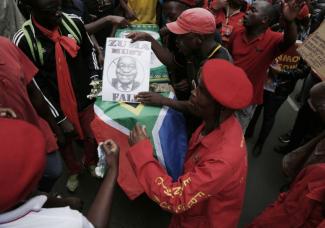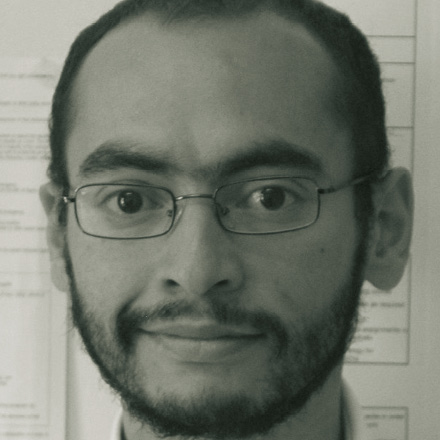Democracy
The ANC’s real crisis
 Farrell/picture-alliance/AP Photo
Farrell/picture-alliance/AP Photo
The ANC (African National Congress) is celebrating resolutions adopted at its centenary in 2012 this year and commorates of Oliver Tambo, who was one of its outstanding leaders. Its most famous leader, of course, was Nelson Mandela. The celebrations have been declared an opportunity to consider the failures and successes since majority rule was introduced in 1994. Moreover, the party has pledged to recommit to the Freedom Charter, the document which outlined the aspirations of the black liberation movement back in 1955.
The party itself is in crisis, however. Internal battles are raging. The truth is that the ANC has been unable to fulfil the social-justice promises of the liberation movement.
The media tend to say that President Jacob Zuma and his friends are the cause of the crisis because of their corruption. This view is not entirely wrong, but it misses the whole picture. The core problem is the ANC’s political culture.
The ANC is supposed to be a broad church in which communists, liberals and capitalists can join forces. This sense of unity has been hailed as its marvellous strength even though the party has been unable to use compromise to resolve social conflicts.
Its ideology-transcending stance worked in the negotiations that turned South Africa into a real parliamentary democracy in 1994. Indeed, it was probably necessary to overcome the racist Apartheid regime.
Since 1994, however, the big-church approach has not been helpful. South Africa’s social disparities remain huge and have probably even grown. Most black people still lack opportunities. Nothing shows the great divide more clearly than land ownership. A white elite is still in control, whilst masses of black people live in crowded townships and informal settlements.
The ANC had promised to tackle the issue of land ownership. Its land redistribution policy was based on voluntary deals and called “willing buyer, willing seller”. This approach did not achieve anything meaningful, and the ANC has been discussing alternatives for a long time. It did not adopt a new policy however.
ANC members are now accusing the leadership of “double speak”. It speaks the language of the poor black majority, while protecting the privileged few – who are mostly white – and allowing a handful of black people to rise to middle-class prosperity.
As meaningful redistribution is impossible as long as the governing party stays a broad church, the promises of social change turn out to be lies. Compounding the problems, the ANC lacks internal democracy. The leaders’ mindset was formed during the liberation struggle when the organisation was illegal. At that time, strict loyalty could be a matter of life and death, and it was considered unacceptable to challenge leaders in any way. Today, the leaders still demand loyalty and insist that members must not campaign ahead of leadership elections.
As a result, inner-party debate is not transparent, and the party members cannot hold the top brass accountable. The party does not discuss policy options, assess their impacts and then implement convincing ideas. These things should be done in public, but they do not happen.
To bring about change, the ANC needs a coherent programme that provides opportunities to the black majority. That way, the party could live up to the social-justice aspirations that were spelled out in the Freedom Charter in 1955. So long as it pretends to promote everyone’s interests, it is basically protecting the predominantly white elite.
Yes, Zuma’s corruption is deeply irritating. Ultimately, however, it does not matter whether the ANC is led by him or someone more like the charismatic Nelson Mandela. Thabo Mbeki, Mandela’s British-educated successor, lost power to Zuma because he could not bring about change. Now it has become clear that Zuma is not delivering results either, and he will certainly not be in office very much longer. Non-transparent struggles are going on inside the party to replace him.
To escape its malaise, however, the ANC does not simply need a better leader. It needs more inner-party democracy and a programme that leads to meaningful change.
Majaletje Mathume is a South African student and activist.
majaletjet@gmail.com

